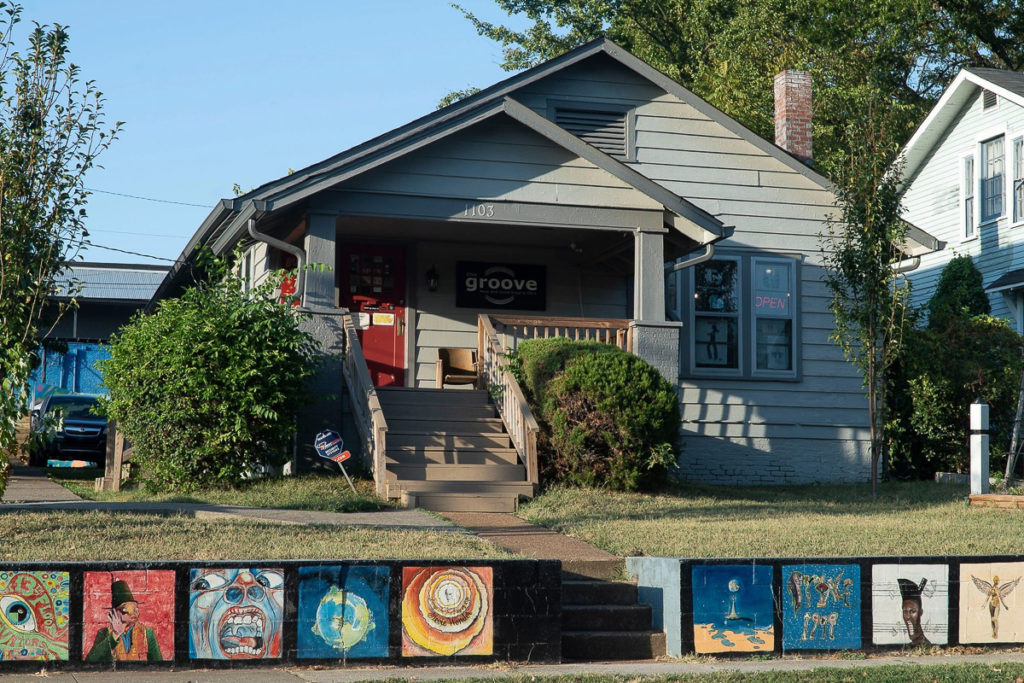
The Groove is a small record shop nestled into a modest house near Five Points. It’s got a reputation for being a community space, hosting live music and showing scary movies on a projector in the backyard.
But their landlord is selling, and The Groove is at risk of becoming one of the latest victims of the city’s sky-high real estate prices.
Part of their lease agreement gives The Groove an opportunity to buy the building before it hits the competitive real-estate market. Unfortunately, the price tag is about half a million dollars, say Jesse Cartwright and Michael Combs, who run the business. They need to raise the money by the end of January.
“When you think about East Nashville, you think about the location, everyone says, ‘Well, that’s not bad for Nashville,'” Cartwright says. “And it, I guess, isn’t. But for a small business it’s just unimaginable, honestly. It’s just not something that is doable.”
And it comes at a time when shipping and vinyl costs are up, and profit margins are down, he says.
If The Groove’s situation sounds familiar, that’s because it’s similar to what happened to beloved independent music venue Exit/In earlier this year. They made a bid to crowd-fund money to secure ownership of their building, which was nonetheless sold to a developer.
Other music-oriented businesses that have faced redevelopment pressure in recent years include The Basement on Eighth Avenue South and the Music Row bar Bobby’s Idle Hour.
Cartwright says that small businesses where people can come and see live musicians before they get famous are what make Nashville special. “Cookie-cutter” and “corporate” development threaten that culture, he says.
“I’m all for progress,” Cartwright says. “I love being in a city that is one of the ‘It’ cities. But we can’t completely bulldoze everything that made Music City, Music City.”

